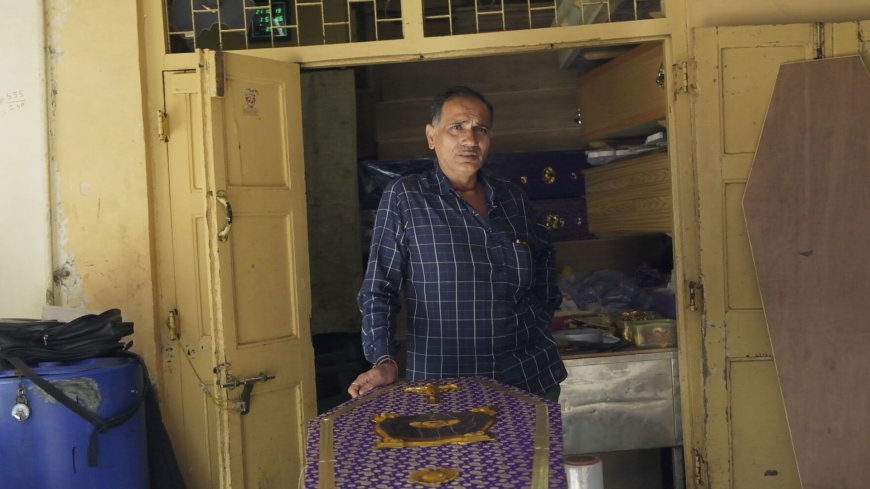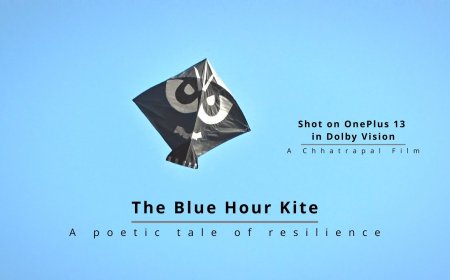Review: Aakhri Safar (2021)

Suraaj Gunjal’s Aakhri Safar begins with a simple yet quietly disarming statement from its subject: “If the belly is popping out, the coffin won’t close.” The remark, made with workmanlike pragmatism, sets the tone for what follows is a documentary that refuses to sentimentalise death, yet remains deeply aware of its moral and social resonances. At its centre is Praful, a 52-year-old coffin-maker from Mumbai, who treats his unusual vocation with the calm of a man who has long accepted life’s final inevitability.
Gunjal’s documentary draws its power from the ordinariness of Praful’s minutiae. We watch him deliver coffins with unhurried efficiency, moving between mortuaries, homes, and cemeteries. The camera often lingers on the logistics of the trade: the slow, careful turning of a coffin through a narrow staircase, the measured steps taken to ensure dignity even in transit. These moments, filmed with unshowy precision, reveal a world where craftsmanship and ritual intersect. Praful’s work, though transactional, is suffused with an understated piety.
The strength of the narrative lies in its refusal to romanticise its protagonist. Praful is neither a philosopher of death nor a rebel against social prejudice. He is, instead, a practical man who has tried and abandoned other jobs—auto-rickshaw driver, tea vendor, courier deliveryman—before settling into this one, which he believes “fetches blessings.” Through this conviction, Gunjal reveals a moral inversion of a man engaged in an occupation many consider defiling, regarding it as sacred service.
The social tensions around his work surface gently. Praful’s wife finds the job distasteful and isolating, and his daughter conceals it from her peers. Only his son-in-law recognises the precision and grace with which he performs his duties. Gunjal allows these differing attitudes to unfold without editorial emphasis, trusting the viewer to sense the quiet friction between devotion and stigma. In one telling moment, we are informed that had Praful lived in a village, caste hierarchies would have barred him from this work altogether. The comment lands with quiet devastation and reminds us that urban anonymity can, at times, offer a fragile space of freedom.
Gunjal’s observational style is clear, uncluttered, and faintly ironic. The anecdotes scattered through the film, such as a family rejecting a coffin after a last-minute change of religious conviction, or Praful’s insistence on apologising if a coffin brushes a wall, reveal an ethics rooted in respect for the dead. Even bureaucracy enters this moral landscape. A death certificate must precede the sale of an empty coffin, lest it be misused.
A friend of Praful’s delivers the documentary's most resonant line: “Yama takes the soul away, but Pappu bhai does everything the body needs.” In that wry observation lies the essence of Aakhri Safar, a portrait of a man who has made peace with mortality by tending to its material demands. Gunjal’s film, modest in scale but rigorous in insight, becomes an elegy for the unseen custodians of death, those who navigate its rituals so the living can grieve in order.
Aakhri Safar had its World Premiere at the 13th International Documentary & Short Film Festival of Kerala (IDSFFK). The documentary is now streaming on BookMyShow Stream.
What's Your Reaction?

































































